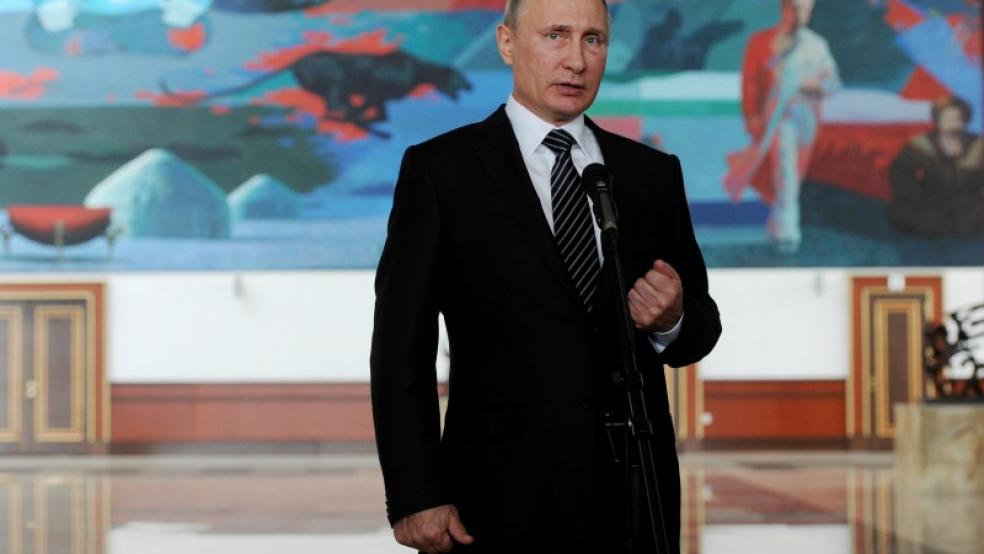MOSCOW/BEIRUT (Reuters) - Moscow stepped up its war of words with Washington on Sunday, saying air strikes by a U.S.-led coalition on the Syrian army threatened the implementation of a U.S.-Russian ceasefire plan for Syria and bordered on connivance with Islamic State.
The diplomatic row heated up on the last day of a seven-day ceasefire marred by a surge of violence as warplanes hit the strategic northern city of Aleppo for the first time since the truce came into effect. On Saturday the Russian defense ministry said U.S. jets had killed more than 60 Syrian soldiers in the eastern Syrian city of Deir al-Zor in four air strikes by two F-16s and two A-10s coming from the direction of Iraq.The Syrian Observatory for Human Rights, a Britain-based monitoring group with contacts across Syria, cited a military source at Deir al-Zor airport as saying at least 90 Syrian soldiers had been killed.Russia's foreign ministry said in a strongly worded statement that the U.S. position on the incident was "unconstructive and inarticulate"."The actions of coalition pilots - if they, as we hope, were not taken on an order from Washington - are on the boundary between criminal negligence and connivance with Islamic State terrorists," it said."We strongly urge Washington to exert the needed pressure on the illegal armed groups under its patronage to implement the ceasefire plan unconditionally. Otherwise the implementation of the entire package of the U.S.-Russian accords reached in Geneva on Sept. 9 may be jeopardized."Russia, which along with Iran supports Syrian President Bashar al Assad, has called on the United States to press units of moderate Syrian opposition to separate from Islamic State and other "terrorist groups".Iran also condemned the U.S. military action."America's action which coincided with an attack by Daesh (Islamic State) was in violation of the independence and sovereignty of Syria, and such moves indicate that America supports terrorist groups in Syria," an Iranian foreign ministry spokesman was quoted as saying by Iranian news agencies. The U.S. military said the coalition stopped the attacks against what it had believed to be Islamic State positions in northeast Syria after Russia informed it that Syrian military personnel and vehicles may have been hit."We are reaching a really terrifying conclusion for the whole world: That the White House is defending Islamic State. Now there can be no doubts about that," Russian Foreign Ministry spokeswoman Maria Zakharova said in comments aired by state TV.The U.S. ambassador to the United Nations, Samantha Power, said Zakharova should be embarrassed by that claim. Russia's U.N. representative Vitaly Churkin said Russia had no "specific evidence" of the U.S. colluding with Islamic State militants.The diplomatic row is likely to further complicate the delivery of humanitarian aid to Syria, including its largest pre-war city of Aleppo where the situation remains especially tense and Monday's fragile truce has been repeatedly violated.The U.N. told Reuters aid trucks that had been expected to move to Aleppo on Sunday morning were once again being delayed."It's a tough moment," one top aid official in Geneva told Reuters. "The U.N. convoys are highly politicized." CEASEFIRE Russia's defense ministry said conditions in Syria were deteriorating, as fighting escalated in parts of the country where the ceasefire, which is set to expire late on Sunday, should apply. Aleppo, where previous ceasefires this year have come unstuck because of outbreaks of violence, was hit by air strikes for the fist time since the truce came into effect.The strikes came as Moscow said tension was rising in and near what was Syria's most populous pre-war city, as militants were preparing for large-scale military actions against the Syrian army. Heavy clashes continued on Sunday east of Damascus in the rebel-held Jobar suburb between rebels and Syrian government troops and allied forces, the Syrian Observatory for Human Rights and a witness said. Sunday is the first day of the new school year. Residents living near Jobar and the wider Eastern Ghouta suburbs told Reuters they were afraid of the mortars and fighting. The al-Rahman Legion, part of a Free Syrian Army rebel alliance in the Damascus suburbs, said in an online statement its fighters had destroyed a Syrian government tank and killed soldiers after government forces tried to storm Jobar for the second time this week. The Syrian Observatory for Human Rights said at least eight people died and many were seriously injured when helicopters dropped barrel bombs onto a town in a rebel-held part of the southern Syrian province of Daraa on Sunday.Insurgents say they only reluctantly accepted the initial deal, which they believe is skewed against them, because it could relieve the dire humanitarian situation in besieged areas they control, and blamed Russia for undermining the truce."The truce, as we have warned, and we told the (U.S.) State Department - will not hold out," a senior rebel official in Aleppo said, pointing to the continued presence of a U.N. aid convoy at the Turkish border awaiting permission to enter.Rebels have also accused Russia of using the ceasefire to give the Syrian army and allied Shi'ite militias a chance to regroup and deploy forces ready for their own offensives.Islamic State is excluded from the truce. U.S.-led and Damascus-led operations against the militants have continued throughout the ceasefire on various fronts. On Sunday, Islamic State said in an online statement it had shot down a warplane in Deir al-Zor with "anti-aircraft" guns, in the same area as the U.S.-led coalition strikes hit the Syrian military on Saturday. The Syrian military confirmed the loss of a warplane which it said had been carrying out an operation against the militants. (Reporting by Dmitry Solovyov in Moscow and Lisa Barrington in Beirut. Additional reporting by Stephanie Nebehay in Geneva and Polina Devitt in Moscow; Editing by Richard Balmforth)Moscow says strikes on Syria army threaten U.S.-Russia ceasefire plan

SPUTNIK



